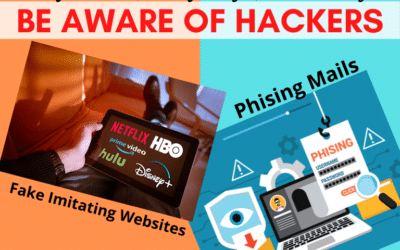Online gaming has become a massively lucrative industry and today people regularly game online, a figure which rises to 64 percent for 25 to 34-year olds and 67 percent for those aged 16 to 24.it’s become potentially lucrative for cyber criminals to hack gaming accounts to be sold on the black market today there are more females than males spending money on games, Where there’s an opportunity for financial abuse, there will always be those who try to exploit it. Cyber security for gamers has become a concern, and rightly so.
Whether you play games on your PC or mobile, there are precautions you need to take to keep your devices and data secure. Cyber criminals are interested in targeting gamers more than ever before because of the popularity of games on all devices.
Nowadays, attackers are really good in designing emails and copycat websites with fraudulent URLs which look the same as your favorite game, so we recommend that you type the URL of the website into your browser instead of clicking on the link and go directly to your account to see for yourself if something is really wrong.
If one of your various gaming accounts is hacked, it’s not just about that particular platform. Even if you think some platforms might be inconsequential (just a browser game you once signed up for), hackers can easily use your leaked credentials in order to gain access to more important accounts.
Credential Stuffing is one of the easiest ways for hackers to steal money or data. It doesn’t require much technical sophistication and buying leaked credentials is cheap. From there on, they just (rightly) assume that people tend to re-use the same password for multiple accounts and they keep trying until they break in. Stop credential stuffing before it happens by detecting and mitigating credential stuffing attacks and card cracking using Intent Analytics
An Attack happened:
Researchers at Akamai Technologies went through the credential abuse activity over a 17-month period, uncovered roughly 55 billion credential stuffing attack attempts against various online services. Roughly 12 billion of them targeted the gaming industry.
Everyone who plays complex games knows that there is an entire sub-economy which trades in-game goods and favors. Despite the intentions of developers, who would like players to earn achievements, gear, and rewards by putting in the time and hard work, many players want shortcuts. As long as there’s a demand for it, there will always be other players willing to supply it for real-world money.
Phishing is a scamming technique that consists of sending emails that look like they are official communications from a real company. They usually concern a problem with your account or an important message inviting you to click on a link.
The risk is that the link will lead to a hoax site that asks you to enter personal information such as your username and password. Unfortunately, since it’s not legitimate, the information you enter goes to cyber criminals and your account is then compromised and your information stolen.
What are the risks?
- Inadvertently downloading viruses, Trojan horses, worms, and spyware contained in game downloads onto your computer.
- Having Your Credentials Hacked for a Connected Account
- Dealing with fraudulent entertainment sites that require a credit card number to continue watching or playing. They may also pause the game mid-action and ask you to call a long distance number (and not hang up) in order to continue playing.
- Gaming Malware and Advanced Persistent Threats
- In-game Ransomware for Your Developed Characters and Achievements,This makes people especially invested in their in-game content and even willing to pay a ransom if it gets stolen.
- Interacting with strangers who trick you into giving up personal information.
- Exploitation of security settings on your computer, giving criminals access to your information. This could lead to identity theft.
- 3rd Party Apps and Games (Especially for Mobile Gaming),Just because a mobile game is listed in Google’s AppStore or available to play on Facebook, it doesn’t mean they are definitely safe.
- Dealing with real-world and online predators who lure you into giving them information about yourself. This could include inappropriate contact with children by predators posing as a child.
- Participating in a real-world marketplace in on online game (where you can buy high-level characters, for instance) could involve real-life criminals who are looking to steal your money. Only make credit card payments on sites you trust and don’t send money transfers, cash or make payments outside of the site.
- Password Stealers,The malware business is on the rise, precisely because hackers can gain so much with so little effort. Such an infected link can even come from an innocent-seeming Youtube comment.
Tips to keep gaming safe
- But as with everything in the cyberspace, here are things you should do to keep yourself safe so you can enjoy the experience without worry.
- Make sure your computer is loaded up with a firewall, anti-spyware software and anti-virus software.
- If your firewall allows you to designate specific IP addresses to fellow gamers, do it. This way they’re “trusted” and you’ll reduce the chances of running into malicious programs and people.
- Don’t download unauthorized programs relating to the game.
- Keep your location, gender and age private.
- Don’t use weak passwords
- Choose a username that doesn’t reveal anything about your identity. Consider using a nickname.
- Don’t give away personal information to a stranger during online chatting.
- Use strong passwords that are at least eight characters long and contain letters, numbers, and symbols.
- Keep the game software up to date.
- Use caution when downloading add-ons and modifications for games as they could contain malware.
- Don’t repeat passwords
- Use extra authentication or 2FA
Hackers targeted World Health Organization top Officials.
As we all know that Elite Hackers targeted and try to break in the World Health Organization in March month. The breach was discovered by Alexander urbelis , The Federal Bureau of Investigation recently issued warnings of an uptick in fraudulent crimes tied to the...
Hackers Targeting on Social Media in COVID-19 Pandemic
Hackers Targeting on Social Media in COVID-19 Pandemic For anyone who's been on the internet and scrolling down and using social media. Hacks are not a surprising concept. After all, a new hack is being deployed to businesses, organizations, or individuals every 39...
HACKERS EXPLOIT CORONAVIRUS COVID-19 LOCKDOWN WITH FAKE PHISHING EMAILS AND FAKE WEBSITE BY IMITATING.
Phishing is a type of It occurs when an attacker, masquerading as a trusted entity, dupes a victim into opening an email, instant message, or text message. The recipient is then tricked into clicking a malicious link, which can lead to the installation of malware,...
COVID-19 and Cyber-Attacks Challenges to All the Countries
Cyber Attack The Second big challenge to All the countries in COVID -19 pandemic. In the event that COVID -19 pandemic is a major issue for All Countries. A major test of Cyber security has come up to battle. Most IT companies, big organizations and innocent public...
Ethical Hackers did a great job by finding hundreds of Vulnerabilities during Latest Air Force Bug Bounty
Ethical hackers did a great job by finding hundreds of Vulnerabilities during Latest Air Force bug bounty A great job done by ETHICAL HACKERS the U.S. Department of Defense (DoD) and HackerOne, by finding more than 460 Vulnerabilities in Lates Air Force Platform....
Over 500,000 Zoom accounts have been hacked and sold on the dark web: Report
Zoom has had an unmatched rise in popularity ever since the global outbreak of Coronavirus forced people around the world to work from home. However, the platform was seemingly unprepared for this boost in userbase, because this sudden rise in popularity also...








